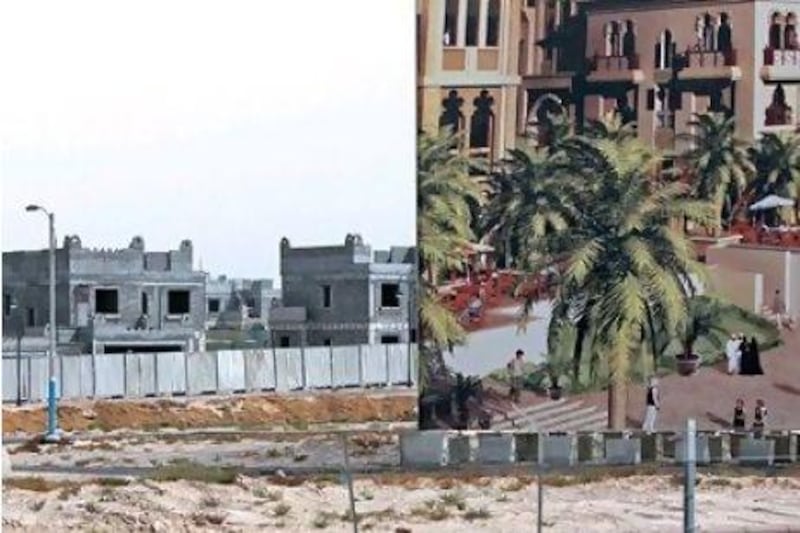The UAE's often complex defamation laws are having a chilling effect on criticism of developers and the property market.
Location, location, location:
Industry Insights What's hot and what's not in the world of property. Learn More
Unhappy buyers and commentators are wary of speaking out in fear of facing a defamation charge, which is a criminal matter in the UAE, according to lawyers. Those who openly criticise developers could face prison time or large fines.
"I think it makes all of us more cautious about how open we are in a public forum," says Ludmila Yamalova, an attorney who often works with property buyers.
While no statistics are available, defamation cases involving expatriates relating to property disputes have steadily increased in recent years, lawyers say.
"The number of defamation cases has risen substantially" as the population of expatriates has grown, says Richard Bell, the legal director at the law firm Clyde & Company.
One recent case involved a lawyer who criticised a developer in a public forum. The developer took the case to the police and the prosecutor filed defamation charges.
The lawyer was required to surrender his passport and spent more than a year defending the case. A judge found the lawyer innocent, but the suit is still on appeal, which means the specifics of the case cannot be reported.
Emotions are running high in the property industry, with thousands of people involved in expensive claims against stalled projects.
But many buyers will not allow the media to use their names or detail their cases because of the threat of a criminal defamation case.
Legally defining defamation in the UAE is often difficult, even for lawyers.
"The laws are so all-encompassing and generally anything could qualify," Ms Yamalova says.
Cursing someone can be defined as defamation under the law.
And defamation doesn't always involve individuals - it is possible to be charged with making statements defaming a company, although the law is not very clear, says Mohammed Al Marzouqi, a partner with the Abu Dhabi office of the law firm Al Tamimi & Company.
The law says an accusation is not defamation if it is true. But a statement made in a public forum and meant to bring shame on an individual might still be ruled defamation, even if it is accurate, according to Mr Bell.
"Truth is a defence, but in this region it is not an absolute defence," he says.
Foreign investors are often surprised at how the law is applied in the UAE. A contractor who tells colleagues a company is insolvent may be accused of defamation. A yelled accusation at a meeting or a critical email to colleagues could also result in charges.
The focus of the law is protecting the honour of families, Mr Bell explains.
"It is a cultural clash," he says. "In the Middle East, you do have freedom of speech to a certain extent, but that is trumped by the reputation of individuals and their families."
There are many grey areas in the law. When homeowner associations recently placed notices in lobbies of apartment towers in Dubai naming owners who had not paid service charges, that could be construed as defamation, attorneys say.
The system makes it simple for developers or any other party to file a defamation claim. Typically, they can take the charge to the police. After what might be a brief investigation, the police pass it on to the public prosecutor, who is responsible for filing a case.
"It is significantly easier to bring defamation claims here than in other jurisdictions," Mr Bell says.
The result can be a "very painful procedure", Mr Al Marzouqi says.
In addition to surrendering their passports, the accused typically must hire lawyers and face anywhere from eight months to a year before their cases get to trial.
Penalties can be up to two years in prison and a fine of as much as Dh20,000 (US$5,444).
Once the prosecutor files a case, "the burden is on you to defend yourself", Mr Al Marzouqi says.
twitter: Follow and share our breaking business news. Follow us





